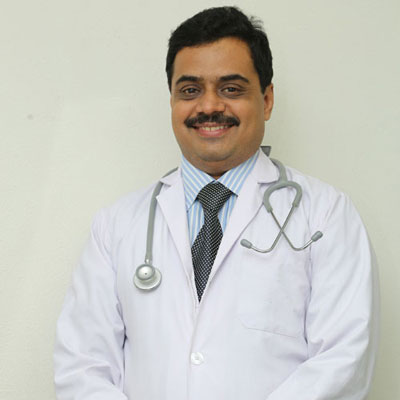|
Getting your Trinity Audio player ready...
|
Contents
A detailed consultation with your plastic surgeon is essential for ensuring a safe and satisfying surgical experience. This meeting helps you understand the procedure, clarify your goals, and align expectations with realistic outcomes. Asking the right questions during your consultation empowers you to make informed decisions and builds trust with your surgeon. Being well-prepared is key to achieving the best possible results from your plastic surgery journey.
What will I look like after the surgery?
Patients often ask about their visual outcomes. Your surgeon should explain what results you can realistically expect. Before-and-after photos and 3D simulations can help you envision the change. In general, most cosmetic procedures yield measurable benefits. Studies show that the majority of patients experience improved self-esteem and quality of life after plastic surgery.
For example, more than 95% of breast augmentation patients report satisfaction with their outcomes. Common positive outcomes include an improved body image, enhanced natural appearance, and relief from discomfort. Your surgeon will review what’s achievable in your case, showing you realistic examples to clearly understand the expected result.
What are the realistic outcomes and potential risks?
It’s crucial to understand both the benefits and the risks. Your surgeon will outline the likely results, but also be honest about limitations or possible need for future touch-ups. At the same time, ask about complications. Serious surgical complications are rare. Studies show major issues occur in under 1% of outpatient cosmetic procedures – but they can happen.
Common risks include infection, blood clots, nerve injury causing numbness, anaesthesia reactions, or tissue loss. Discuss how likely each risk is and what will be done to prevent or manage them. Knowing these realistic outcomes and precautions will help you make a fully informed decision.
What does the complete cost include?
Plastic surgery cost has several parts. Typically, you will see separate fees for the surgeon, anaesthesia, and facility (operating room). The surgeon’s fee covers their time and expertise, the anaesthesia fee covers the anesthesiologist, and the facility fee includes the cost of the operating room, nursing care, equipment, and supplies.
Ask for a detailed quote: it should list all components, including any implants or special materials (which can add extra charges). Also, check whether post-operative supplies (like garments or dressings) and follow-up visits are included. Knowing exactly what is and isn’t covered will help you avoid surprises and compare quotes accurately.
It’s crucial to understand that these costs can vary significantly based on the complexity of the procedure, the surgeon’s experience and reputation, and the geographical location of the clinic. Some practices may also include pre-operative consultations and tests within their overall fee, while others charge for these separately.
Always inquire about potential hidden costs and any contingencies for complications or extended recovery. Transparent pricing is a sign of a reputable practice, allowing you to make an informed decision and budget effectively for your transformative journey.
What is the recovery process and aftercare plan?
Recovery varies by procedure, but you should get a clear timeline and instructions. For example, minor procedures often allow a return to normal activities within a few days, major surgeries may take a few weeks, and complex operations can require up to a year for full results.
Expect swelling and bruising initially; these usually fade over weeks to months. Pain management will also be addressed, often with medications or cold compresses. Follow your surgeon’s aftercare plan carefully: this will cover wound care, activity restrictions, and signs of trouble.
Typically, you will be advised to avoid heavy lifting and strenuous exercise until the surgeon clears you. Regular follow-up appointments are part of the plan – at these visits, the doctor can check healing and may recommend things like physical therapy if needed. Rest, proper nutrition, hydration, and patience are crucial during this period.
It’s also important to monitor your emotional well-being, as recovery can be mentally challenging. Support from family or friends can make a significant difference. Understanding the recovery schedule and adhering to aftercare instructions will help you to get the best results and minimise the risk of complications.
Will it hurt, and how will the pain be managed?
It’s normal to experience some discomfort after surgery, but modern techniques make it manageable. Your surgeon will explain the pain management strategy. In many cases, you’ll receive prescription pain medication and guidance on using ice packs or rest to reduce swelling and pain.
Ask about your pain medication schedule – following it precisely is important for comfort and to prevent complications. Some surgeons use long-acting anaesthetics or nerve blocks during surgery to minimise post-op pain. Do not hesitate to discuss pain control options: a good surgeon will ensure you have a plan for staying comfortable as you heal.
Beyond medication, remember that gentle movement, as advised by your surgeon or physical therapist, can also aid in pain reduction and accelerate recovery by improving circulation. Nutritional support is vital too; a healthy diet can promote healing and bolster your body’s ability to cope with discomfort.
Don’t underestimate the power of adequate rest and stress management techniques like deep breathing or meditation, which can significantly impact your pain perception. Open communication with your medical team is key; they are there to help you navigate your recovery comfortably.
Conclusion
A thorough plastic surgery consultation should leave you feeling informed and confident. By asking these five questions – about outcomes, risks, costs, recovery, and pain management, you cover the essential topics for any procedure. Write down your concerns, communicate openly with your surgeon, and make sure all your questions are answered. This checklist will help you and your doctor create a safe, clear plan for your cosmetic procedure, leading to the best possible results. Remember, your consultation is the time to gather information and set realistic goals.
Hear from our patients
EXCELLENTTrustindex verifies that the original source of the review is Google. Dr.shah is very kind and understanding... during my surgery of xentholesma..sir didn't late me feel nervous at all..he kept talking to me..he kept singing classic old hindi songs while performing surgery..I was like "ye to apne type ka banda hai"..I didn't even realise when my surgery got over. mr. Bhargav in staff and other team members were very kind an supportive.. I just have one minor complaint..simple panipuri wala or vegetable person in surat is always ready to receive online,UPI ,QR payment..but,pharmacist over their always be like "mera to cash payment hoga". Rest all is good.. people over there are very sincere at their work. I would definitely suggest to visit elegance clinic for getting your xentholesma cured.treatment charges are also affordable.Posted onTrustindex verifies that the original source of the review is Google. I am fully satisfied my hydrafacial treatmentPosted onTrustindex verifies that the original source of the review is Google. The experience was too good staff was really humble and the results were actually good!Posted onTrustindex verifies that the original source of the review is Google. I got hair transplant which is very painful but Got it done on ELEGANCE so it was very normal and which was bery helpful for me Special thanks to staff.Posted onTrustindex verifies that the original source of the review is Google. I had PRP and laser treatments at Elegance clinic for my skin and hair, and the experience has been truly excellent. Dr. Krina handled my skin treatment with great care and attention — I noticed a visible improvement in my skin texture and glow. For my hair, Dr. Bhargav and Dr. Ashutosh guided me through the PRP sessions with patience and professionalism, ensuring I was comfortable and well-informed throughout. The entire staff is polite, supportive, and the clinic maintains high standards of hygiene and advanced equipment. Overall, I’m very satisfied with the results and would highly recommend this hospital to anyone looking for genuine care and effective treatmPosted onTrustindex verifies that the original source of the review is Google. Dr Asutosh sir is very excellent Tammy tack sargary..Posted onTrustindex verifies that the original source of the review is Google. A good doctor clinic review often highlights a clinic's positive aspects, such as a doctor's expertise, a friendly and competent staff, convenient hours, and a clean, comfortable environment.Posted onTrustindex verifies that the original source of the review is Google. After suffering a serious burn injury due to a machine accident, I was fortunate to be treated by Dr. Ashutosh Shah at Elegance Clinic. His skill and calm approach gave me confidence from the first consultation. The surgery was done with great care, and the recovery support was outstanding. The clinic is clean and peaceful, and the staff treats you like family. Forever thankful for their help during a very tough timePosted onTrustindex verifies that the original source of the review is Google. One of the best doctors as well as staff in the town, just loved the process post surgery, follow up calls is non negotiable for them. Dr ashutosh shah and dr chetan were incredible. Best service provided by the elegance clinic!Posted onTrustindex verifies that the original source of the review is Google. "We had a wonderful experience at Elegance Clinic for my wife's HIFU treatment. The staff was friendly and supportive, and the clinic environment was very professional. Dr. Ashutosh Shah took the time to explain the procedure and what to expect. The final result is excellent—my wife's skin looks much firmer and rejuvenated. She is very happy, which makes me happy! A truly world-class clinic for aesthetic procedures
Why Are We the Best?
FAQs
During a consultation, expect to discuss your medical history and aesthetic goals. The surgeon will examine the area of concern and explain the procedures. You will also review realistic outcomes and ask about risks, recovery, and costs. It is a one-on-one meeting to learn about your options and address your concerns.
It varies by practice. Many surgeons offer free consultations, while others charge a fee. If there is a fee, ask whether it will be credited towards the surgery if you go ahead. Always clarify this before booking.
It is the same process as above. You should expect a friendly, informative discussion of your goals and a physical assessment. The surgeon will review different treatment options and answer your questions. Plan to talk about expected results, potential risks, and any required preparation.
Do your homework before the visit. Research the surgeon’s credentials (look for board certification and patient reviews). Collect reference photos of the results you want. Make a list of specific questions and topics to discuss – for example, (“Am I a good candidate?”) or “How long is recovery?”. Finally, bring a list of your medications and medical history. Being prepared will help you get the most out of your appointment.

Dr. Ashutosh Shah
M.B., M.S., M. Ch. D.N.B. Board Certified Plastic Surgeon and a Director of Elegance Clinic
A Navsari city native, Dr. Ashutosh Shah settled in Surat, Gujarat to establish his cosmetic and plastic surgery practice in 2004.
Elegance Clinic is now more accessible than ever! With our dedicated WhatsApp service at +91 76980 46805, getting in touch with us for any queries or concerns is just a message away. Experience the convenience and ease of our WhatsApp features:
- 🗓️ Booking Appointments: Schedule effortlessly with a message.
- 📋 Explore Our Services: Learn about cosmetic and plastic surgery options available for you.
- 📍 Location Guidance: Find us easily with location guidance.
- ☎️ Ask Helpline: Prompt helpline support for all your queries.
Reach out today for a seamless journey towards wellness and beauty!






